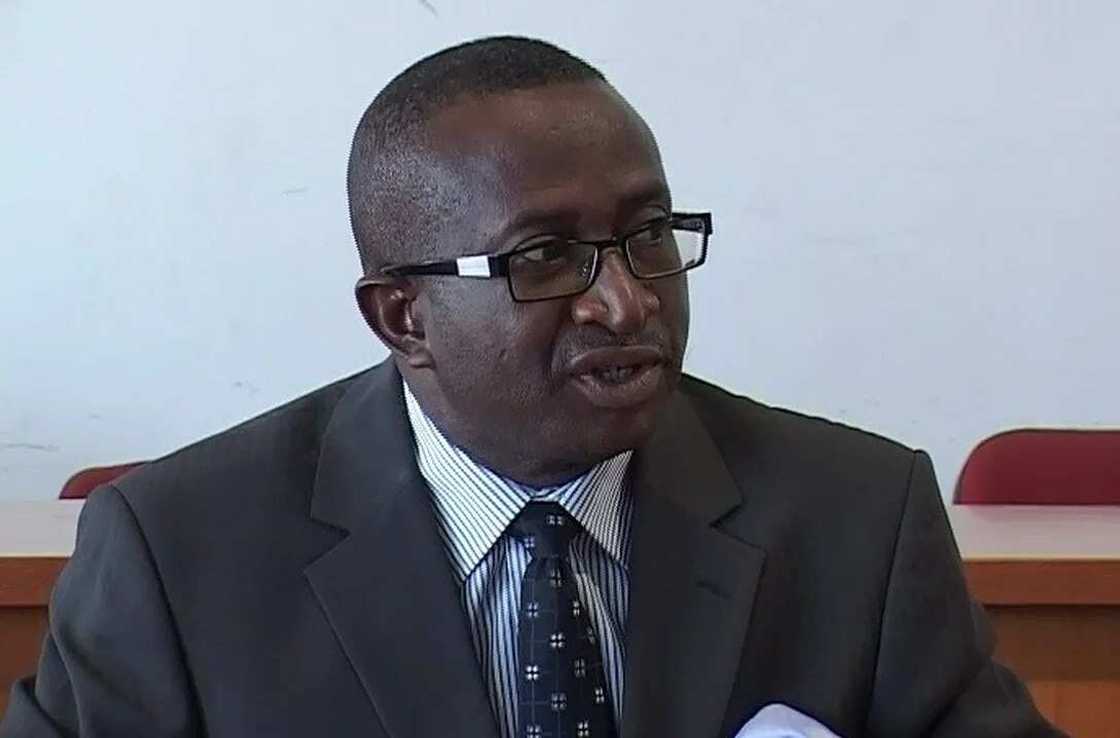Pipeline vandals should get the terrorist treatment - Senator
- Senator Ndoma Egba says people who vandalise pipelines are sabotaging the economy
- He says the government should treat them like terrorists
- He expressed optimism in the better turnaround of the economy
Sen. Victor Ndoma Egba has suggested that President Muhammadu Buhari treat pipeline vandals like terrorists as they are sabotaging the economy of the country.
A group, Niger Delta Avengers has claimed responsibility for series of bombings on gas and oil pipelines leading to problem with distribution and instability of power supply.

In an interview with leadership, Senator Egba said he supports that vandals be treated like terrorists.
“They should, anybody who undermines national security infrastructure is a terrorist. Our oil pipelines are critical security infrastructure because the more you sabotage them, then you are sabotaging the economy.”
He noted that the judicial system was slow but expressed optimism in things getting better.
READ ALSO: Tompolo received stern warning
“Yes our judiciary system is slow. But the criminal justice administration act has just been passed and trial will begin to move faster. Today the judiciary is beginning to appreciate that they have a strong major role to play and they are beginning to respond on the anti-corruption.”
On the issue of turning the economy around, the former lawmaker suggested that agriculture be taken seriously.
“First of all we have to take agriculture and fortunately peace is returning to the country, I hope and pray that it will be enduring peace. That region and the north central has always been the food basket of Nigeria. You can massively inject funds into agriculture in the region, you can create enough ranches for cattle. This nomadic style of cattle rearing is an uneconomic one, the cattle are subjected to so much stress by moving up and down, that is why you cannot export Nigerian cattle because they don’t look healthy and the beef is strong because the cattle are subjected to so much stress, they don’t produce the quantity of milk they should. So we are not even deriving the kind of value we should expect form our cattle.
READ ALSO: Niger Delta militants continue attacks on oil facilities
“Recently, a prof and former ambassador wrote about a country in South Africa and compared their cattle with ours, so we need enclosures so that the cattle can be as productive as they can be. When we were growing up, we depended on agriculture, my grandfather was a big plantation farmer, he was able to send his children to schools in Europe, and he was driving the best car then. Today, these farms cannot produce what it used to because of our inheritance customs. In my part of the world when a man dies, you share his properties among his children. So when the man died, they shared the farms among his children. The farms have become smaller, his children have died and passed it to their children and so it was shared again and they have become smaller. So those lands have become smaller than they cannot produce in large quantity. So the inheritors of the farm abandoned them and moved to things that bring immediately money.
"So we must review those factors that inhibited our realising our potentials. When we had three regions and I was growing up in our town, the hospital we had was compared with any hospital anywhere in Europe. The same with the secondary schools and when we entered the university, our preference was Nigerian University. You only go abroad then when you didn’t get admission to Nigerian University. We were four in a room, you wake up, take your bath, go for lectures, people will come to dress your bed and fix the room. You go to eat, there is a mistress who makes sure you eat the proper meal. Then they started creating states and before you know it, hospitals became consulting clinics. Secondary schools became primaries and universities degenerated to secondary schools. When they say states creation brings development, it is not realistic, we just create a system of inefficiency and social values collapse. When people like us talk, they say we are old school, we are not moving with the trend.”
You may read the rest of the interview here.
Source: Legit.ng


